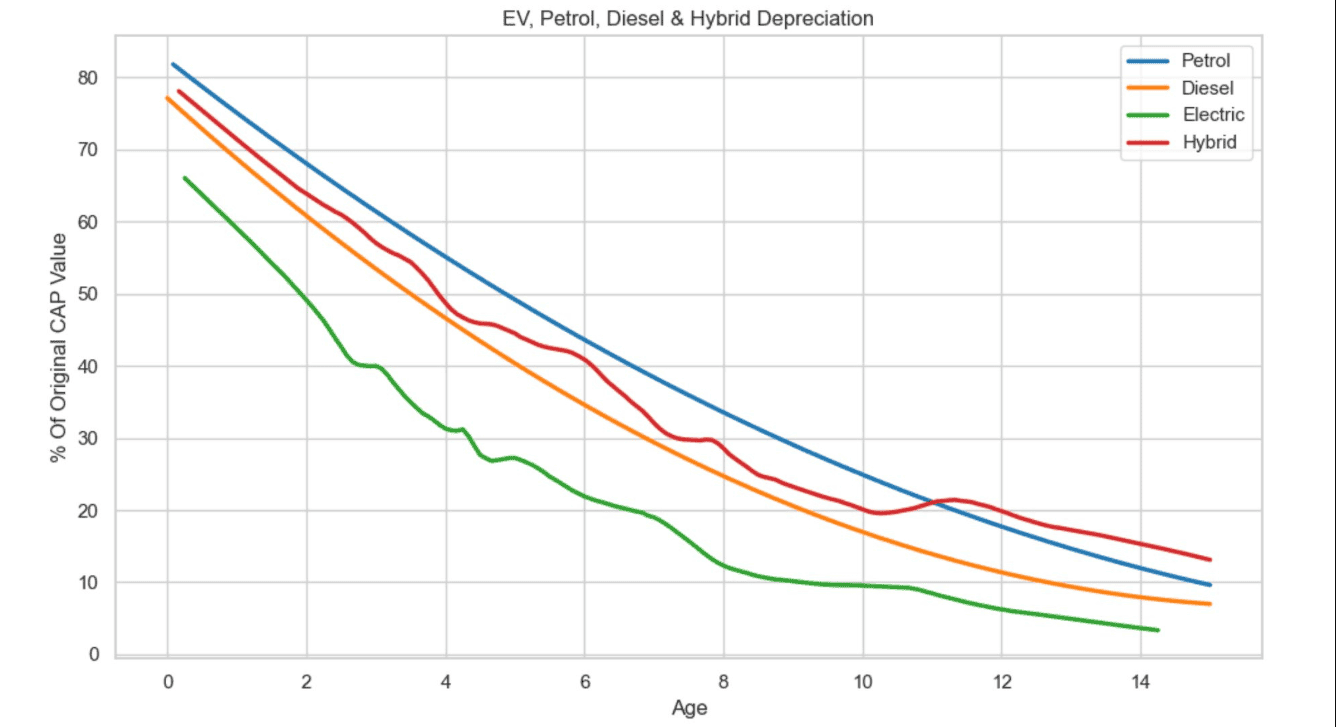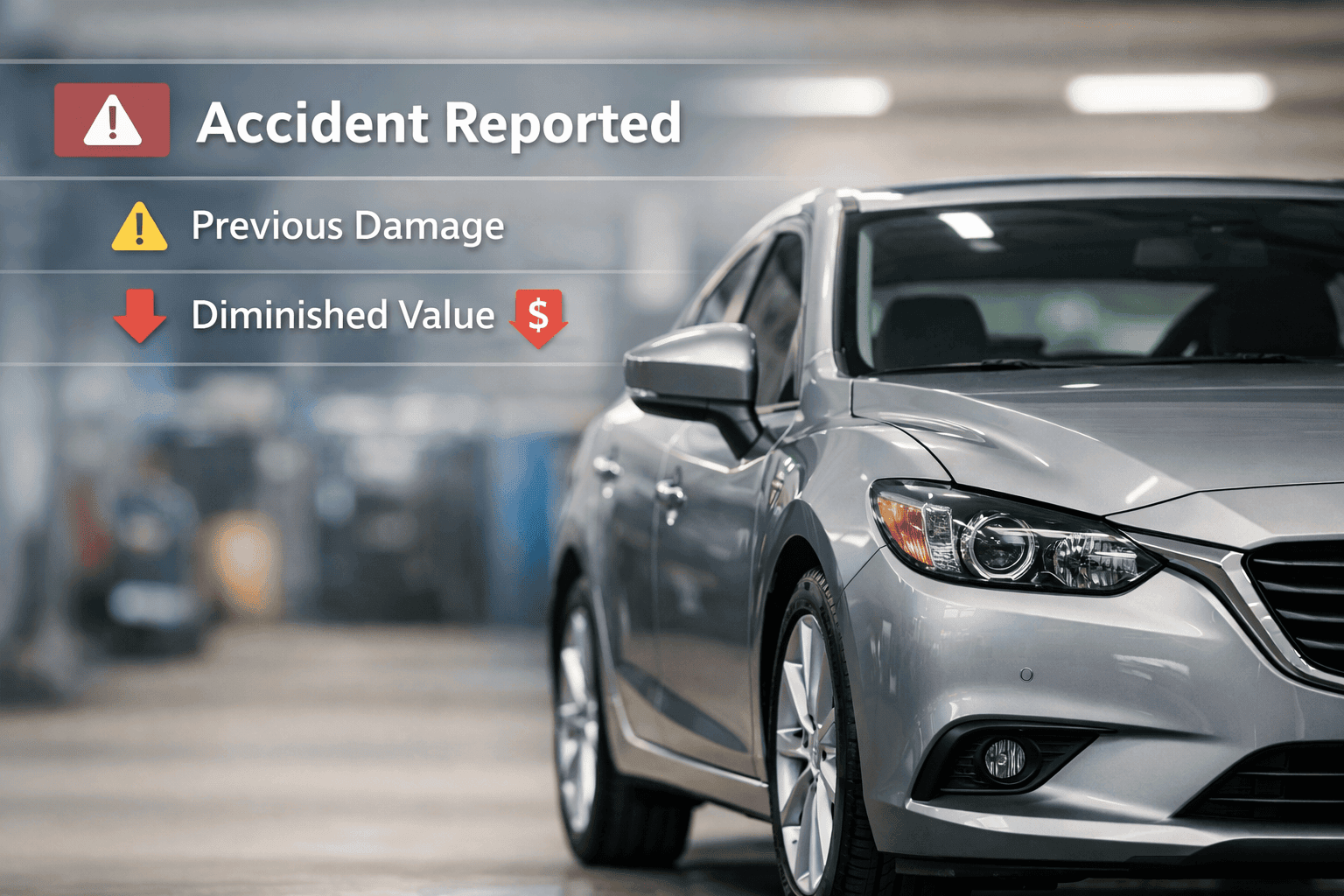Navigating the intricacies of Texas total loss law can be daunting!
Especially if your car has been declared a total loss after an accident.
This comprehensive guide is here to shed light on everything you need to know about it.
We’ll clarify Texas total loss law, from insurance procedures to your legal options.
With expert insights and real-life case studies, you’ll gain a clear understanding of how to handle total loss claims effectively.

Download NOW: Texas Total Loss Playbook PDF
Understanding Texas Total Loss Vehicle Laws
What is a Total Loss?
Imagine that a collision occurred, and a 2022 Honda Civic evaluated in $21,000 got busted.
After the accident, its salvage value was estimated in $17,000.
The costs to get it back as brand new would be $6,000.
The $2,000 exceeding the vehicle’s “actual cash value” before the collision, is what we can call, a total loss.
TLA Formula:
(Cost of Repair)+(Salvage Value)>(Actual Cash Value)
To determine the “ACV” of a vehicle, the adjuster is going to take into consideration its value, factoring, age, miles traveled, structural conditions and if it was involved in any previous damage.
It is very common that insurers rely on resources like Kelly Blue Book, Edmunds or cars.com to ensure the vehicle’s value.
The Insurer Perspective and Your Options
After an accident, an insurance adjuster will assess your vehicle’s damage.
If the repair costs plus the salvage value meet or surpass the ACV, your vehicle is declared a total loss (Texas Department of Insurance).
At this point, you have several options:
A) Accept the Payout
You can accept the insurer’s proposal. Most times it is the ACV payout minus your deductible.
B) Dispute the Valuation (RECOMMENDED)
If you believe the valuation is unfair(and probably is…), you can negotiate with your insurance company.
Gather evidence such as local vehicle prices, similar cases, and obviously, a reliable independent appraiser.
C) Retain the Vehicle
If you rather keep your car, you’ll still get the “actual cash value”. However, the salvage value will be deducted from it. Other downside is that your buddy’s going to be branded as a salvage title car.
A Brief History of Total Loss Laws in Texas
Total loss laws have evolved over time, basically influenced by common practices among insurers.
Over the years, legislation has become more consumer-focused, ensuring fair treatment.
Early laws primarily benefited insurance companies.
But with growing consumer awareness and advocacy, reforms have been introduced to protect vehicle owners.
These changes include clearer definitions of ACV and total loss, more transparent insurance processes, and avenues for dispute resolution.
Peculiarities of Texas Total Loss Law
Texas total loss laws have unique characteristics that distinguish them from those in other states.
Here are they:
Percentage Threshold
Unlike some states that use a fixed percentage to determine a total loss (such as 75% or 80% of the vehicle’s value), Texas law allows insurance companies to use their judgment based on the ACV and repair costs. This can sometimes lead to variations in total loss declarations.
Consumer Protections
Texas has specific regulations to protect consumers during the total loss claims process. These include requirements for clear communication from insurers and the right to dispute valuations.
Salvage Title Regulations
In Texas, if you decide to keep your totaled vehicle, it will be issued a salvage title. This title indicates the vehicle has been declared a total loss and has been repaired. This can significantly impact its resale value and insurability.
Natural Disaster Clauses
Texas law takes into account the frequent occurrence of natural disasters, such as hurricanes and floods. Special considerations are often made for vehicles damaged in these events.
BE CAREFULL
- Salvage Titles
Keeping a totaled vehicle means it will have a salvage title, which can significantly impact its resale value and insurability. - Natural Disasters
Events like hurricanes and hailstorms can lead to a surge in total loss claims, affecting insurance premiums statewide. - Uninsured Drivers
If you’re hit by an uninsured driver, your uninsured motorist coverage can come into play to declare your vehicle a total loss.
What’s On the News?
Texas Tornadoes
A series of tornadoes in 2020 led to a significant number of vehicles being declared total losses. This event highlighted the vulnerability of vehicles to natural disasters and the importance of having adequate insurance coverage.
San Antonio Flood
The 2019 San Antonio floods resulted in extensive damage to numerous vehicles, many of which were declared total losses. This incident emphasized the critical need for comprehensive insurance to cover flood-related damages in Texas.
Icy Road Pile-Up
A massive pile-up on an icy highway in Fort Worth in 2021 caused extensive damage to many vehicles. Several of these vehicles were declared total losses due to the severity of the accidents. This showcases the risks of extreme weather conditions and the importance of appropriate coverage.
Summarizing
Understanding Texas total loss vehicle laws is crucial for any car owner.
Whether you’re dealing with an accident, natural disaster, or an uninsured driver, knowing your rights and options can make a significant difference.
Stay informed, gather your evidence, and don’t hesitate to dispute if you believe the insurance valuation is unfair.
Have you ever had to deal with a total loss vehicle claim?
What was your experience like? Share your stories and tips in the comments below!




